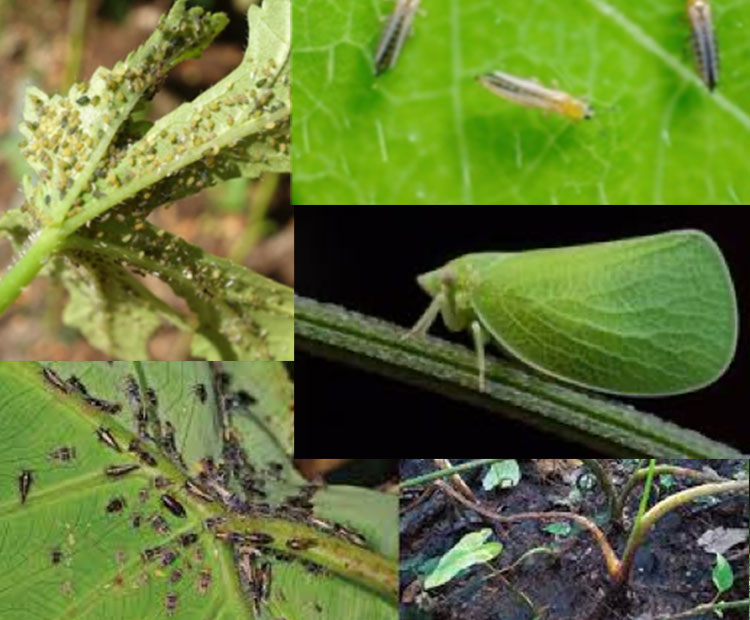Advisory to Farmers
Jamaica is currently experiencing prolonged dry conditions associated with high temperatures which have a noticeable impact on crops and livestock production.
There are reports of notable increases in the population of pests such as whiteflies, aphids, plant hoppers, as well as mites and thrips on several crops.
High temperatures trigger the rapid buildup of pest population as a shorter time is required for the completion of their life cycle. Sap-sucking insects and mites are often found feeding in groups/clusters on the undersides of leaves. Pests that are actively feeding on the younger, succulent parts of plants often cause yellowing, leaf distortion and weakening of plants. Aphids and whiteflies secrete honeydew and so leaves may be sticky or covered with a black sooty mold.
Farmers should be vigilant during the dry, hot periods of the summer months and take the necessary steps to prevent high pest infestations.
The following is recommended:
Farmers are urged to scout their fields for early detection of pest infestations. Look on the surface and undersurface of leaves for aphids, white flies, planthoppers, mites and thrips. They are very small in size and can be easily missed (use a hand lens where possible).
Ensure that old crops are destroyed as they can act as a source of pests for the newly established crops/fields. Aphids, whiteflies and thrips are vectors and can spread plant diseases (viruses and phytoplasma).
Ensure fields and field edges are free of weeds, as they can harbor the pests.
Spraying might be required to reduce pest population. Use insecticides approved for use on the crop and ensure that the crop and the name of pest targeted are listed on the label.
Spraying with insecticide should result in good spray coverage especially because sucking pests prefer to hide on the undersurface of the leaf. Use of a mist blower provides a better reach.
Targeting high pest population with insecticides might be challenging. It is best to manage sucking pest in the early stages of infestation.
For the control of sucking pests, use of insecticide with systemic action should be considered. Several applications may be needed. Use products with different chemistries in rotation. Follow the instructions on the label.
It is important to use of the correct insecticide, dose rate, proper mixing procedures, as well as ensure good water quality to prepare spray mixtures.
Spraying should be done early in the morning or late in the afternoon. Do not spray during hot day hours or in high wind.

